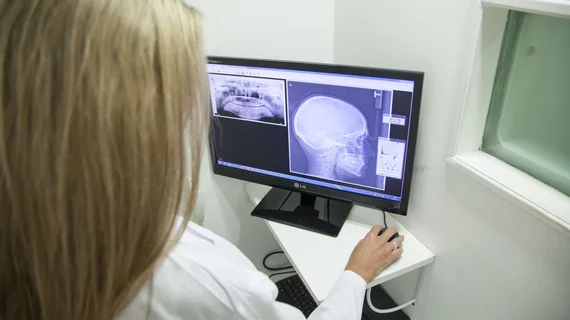ACR warns against using ‘arbitrary’ radiation dose metrics to guide medical imaging decisions
Radiologists using pre-established radiation dose metrics to guide decision-making are hindering patients from undergoing clinically necessary imaging exams, leading health groups cautioned Wednesday.
Oftentimes, imaging providers will base their choices on effective dose data from patients’ prior exams, including cumulative effective dose. Some also rely solely on institutional or regulatory policies when performing exams.
But such information is “arbitrary” and widely disagreed upon among radiation professionals, the American College of Radiology, American Association of Physicists in Medicine and Health Physics Society argued in a position statement published Aug. 6.
“Dose information tracked in EHRs is not standardized—or even universally accepted,” Mahadevappa Mahesh, PhD, MS, chair of the ACR Medical Physics Commission, said Aug. 11. “Imaging history is useful to doctors as they work with patients to determine the best care, but still-evolving dose estimates should not be used to deny patients’ imaging exams prescribed by their doctors.”
Medical imaging ordering should, instead, be grounded in clinical evidence, including prior exam results, the groups argued. The Radiological Society of North America has endorsed the joint statement.
“This statement is an important reminder that patients may receive substantial clinical benefit from imaging exams,” James Dobbins, AAPM President, added Tuesday. “While we want to see prudent use of radiation in medical imaging, and many of our scientific members are working on means of reducing overall patient radiation dose, we believe it is an important matter of patient safety and clinical care that decisions on the use of imaging exams be made solely on the presenting clinical need and not on prior radiation dose.”
The statement only applies when longitudinally tracking patients’ dose exposure and using such information to infer risk. It does not, however, include the use of organ-specific doses or epidemiological research.
Read the full joint statement here.

